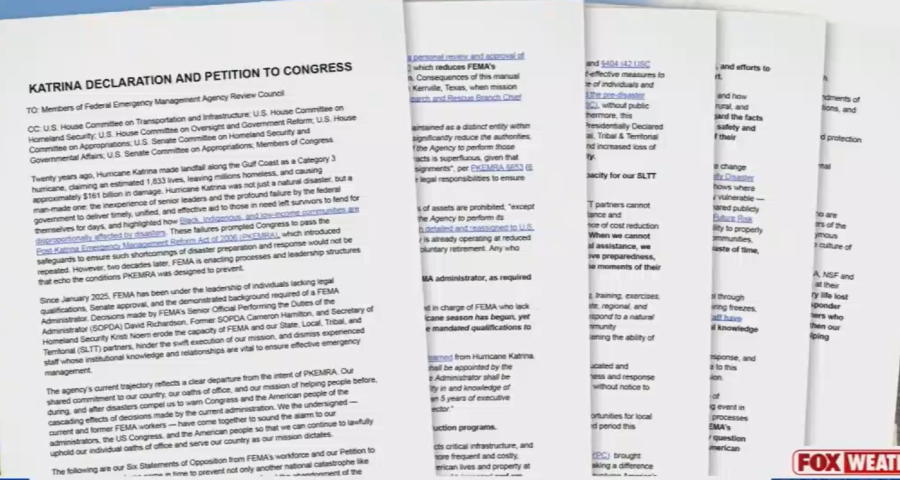Unlike its cable counterparts, Fox News mostly ignored reports that Federal Emergency Management Agency employees wrote a letter to Congress warning about the agency’s direction under President Donald Trump.
The letter noted that the “agency’s direction and current leaders’ inexperience harms the agency’s mission and could result in a disaster on the level of Hurricane Katrina.”
Fox mentioned the warning in only 1 segment, and that report failed to acknowledge that some staff who signed the letter were suspended, which legal experts are calling “illegal retaliation” since the suspensions “blatantly violate the federal laws protecting whistleblowers.”
Among the letter’s concerns are reforms the administration is undoing that were enacted in the wake of Hurricane Katrina to address federal failures, including efforts to prepare communities to be more resilient in a warming world.
Fox’s near-silence on the warning from FEMA employees is part of a larger trend in the network’s coverage of disaster response under Trump.
